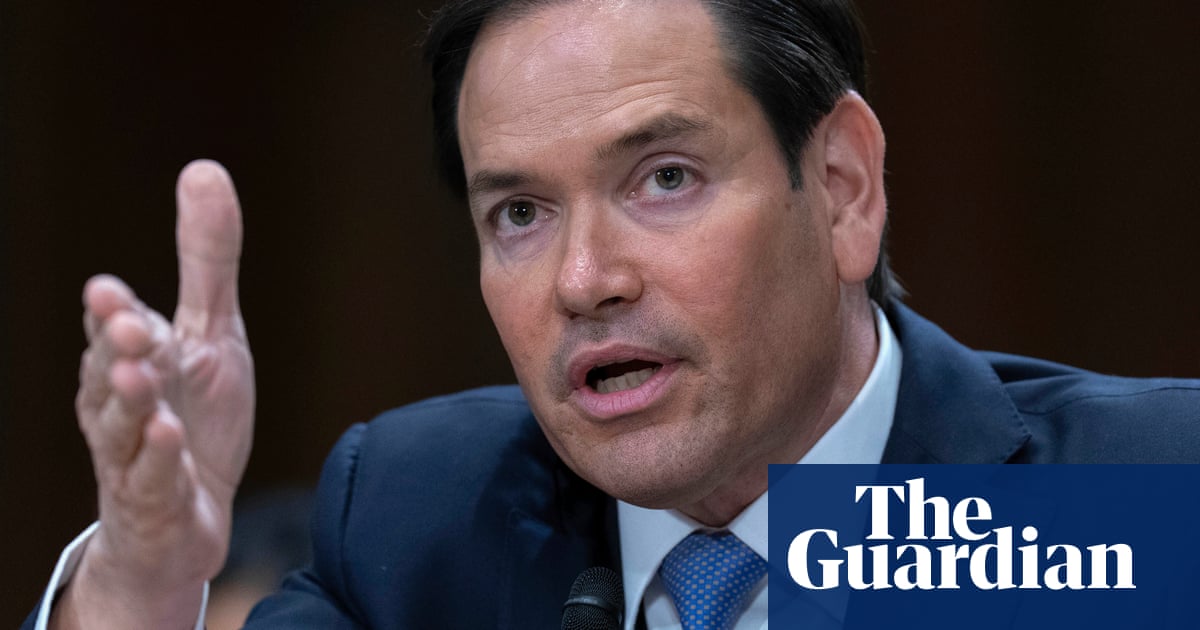Marco Rubio, the secretary of state, has defended the Trump administration’s controversial decision to admit 59 Afrikaners fromSouth Africaas refugees after Tim Kaine, a Democratic senator from Virginia, claimed they were getting preferential treatment because they were white.
Kaine, Hillary Clinton’s former running mate, challenged Rubio to justify prioritising the Afrikaners while cancelling long-standing refugee programmes for other groups that have been more documented as victims of conflict or persecution.
The clash between the two men was Rubio’s most combative exchange in his first appearance before the Senate foreign relations committee since his unanimous approval by senators in confirmation hearing in January.
It came a day before South Africa’s president, Cyril Ramaphosa, was due to meet Donald Trump at the White House in an encounter that promises to be highly charged thanks to the backdrop surrounding the incoming Afrikaners.
“Right now, the US refugee program allows a special program for Afrikaner farmers, the first group of whom arrived at Dulles airport in Virginia not long ago, while shutting off the refugee program for everyone else,” said Kaine, who was a candidate for vice-president alongside Clinton in her unsuccessful 2016 presidential election campaign against Donald Trump. “Do you think Afrikaner farmers are the most persecuted group in the world?”
In response, Rubio said: “I think those 49 people that came surely felt they were persecuted, and they’ve passed … every sort of check mark that had to be checked off in terms of meeting their requirements for that. They live in a country where farms are taken, the land is taken, on a racial basis.”
Trump has falsely asserted that white farmers in South Africa are undergoing a “genocide” and deserving of special status. By contrast, he suspended the US’s refugee resettlement programme on his first day in office in January, in effect stranding 100,000 people previously approved for resettlement.
Kaine asked why Afrikaners were more important than the Uyghurs or Rohingyas, who have faced intense persecution in China and Myanmar respectively, and also cited the cases of political dissidents in Cuba, Venezuela and Nicaragua, as well as Afghans under the Taliban.
“The problem we face there is the volume problem,” Rubio said. “If you look at all the persecuted people of the world, it’s millions of people. They can’t all come here.”
Kaine called the claims of persecution against Afrikaner farmers “completely specious” and pointed to the existence of an Afrikaner minister in South Africa’s coalition government.
He also contrasted the refugee designation of Afrikaners to the absence of such a programme for the country’s Black majority during the apartheid era.
“There never has there been a special programme for Africans to come in as refugees to the United States,” Kaine said, pointing out that special designations were allowed for people being persecuted for religions reasons under communist regimes.
Referring to the US statutory standard of recognising a refugee claim as being a “well-justified fear of persecution”, Kaine asked: “Should that be applied in an even-handed way? For example, should we say if you’re persecuted on the grounds of your religion, we’ll let you in if you’re a Christian but not a Muslim?”
Rubio replied thatUS foreign policydid not require even-handedness, adding: “The United States has a right to allow into this country and prioritise allowance of who they want to allow to come in. We’re going to prioritise people coming into our country on the basis of what’s in the interests of this country. That’s a small number of people that are coming.”
Kaine responded: “So you have a different standard based on the color of somebody’s skin. Would that be acceptable?”
Rubio replied: “You’re the one talking about the colour of their skin, not me.”
More than 30 years after the end of the apartheid system that enshrined white minority rule, white South Africans typically own 20 times more wealth than their black compatriots, according to an article in the Review of Black Economy.
Unemployment among Black South Africans currently runs at 46.1%, compared to 9.2% for white South Africans.
According to the 2022 census, white people account for 7% of South Africa’s population of 63 million, while Black people account for 81%.
